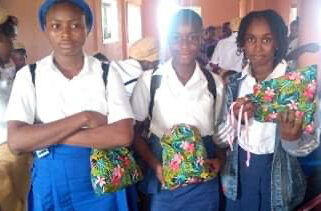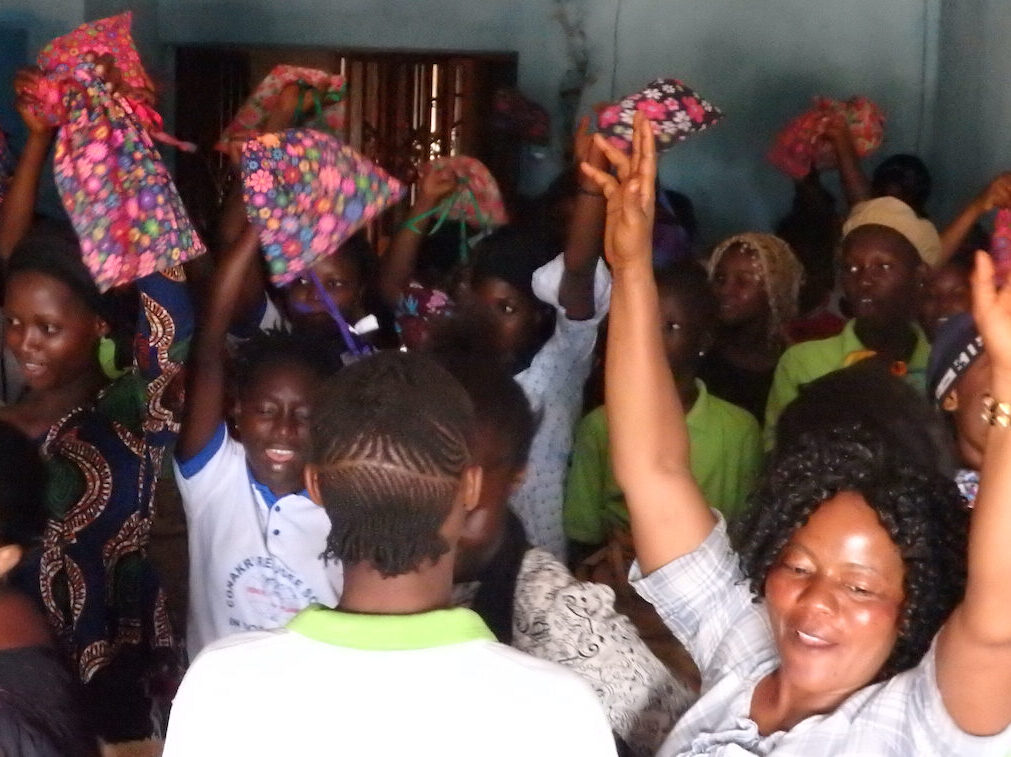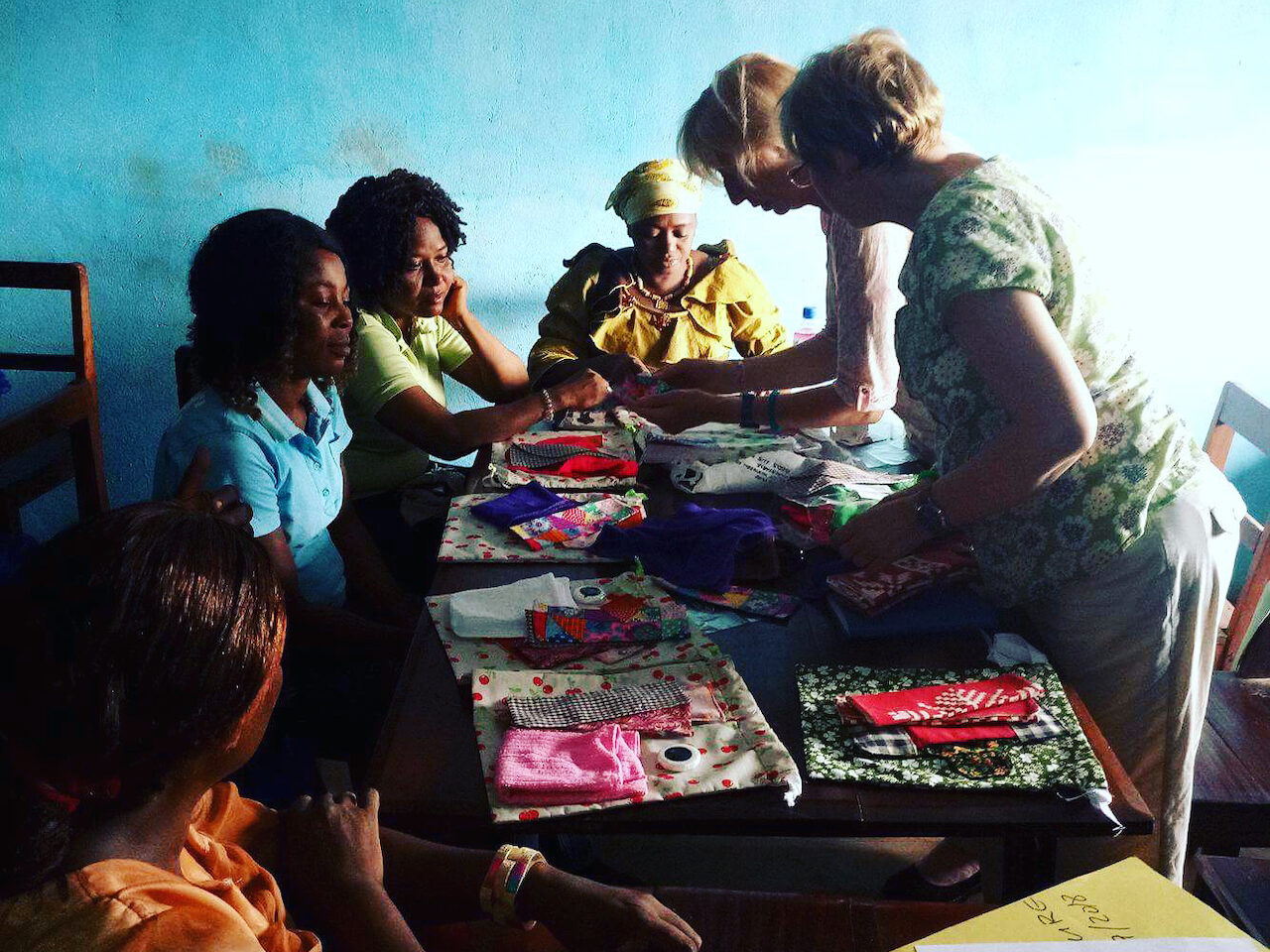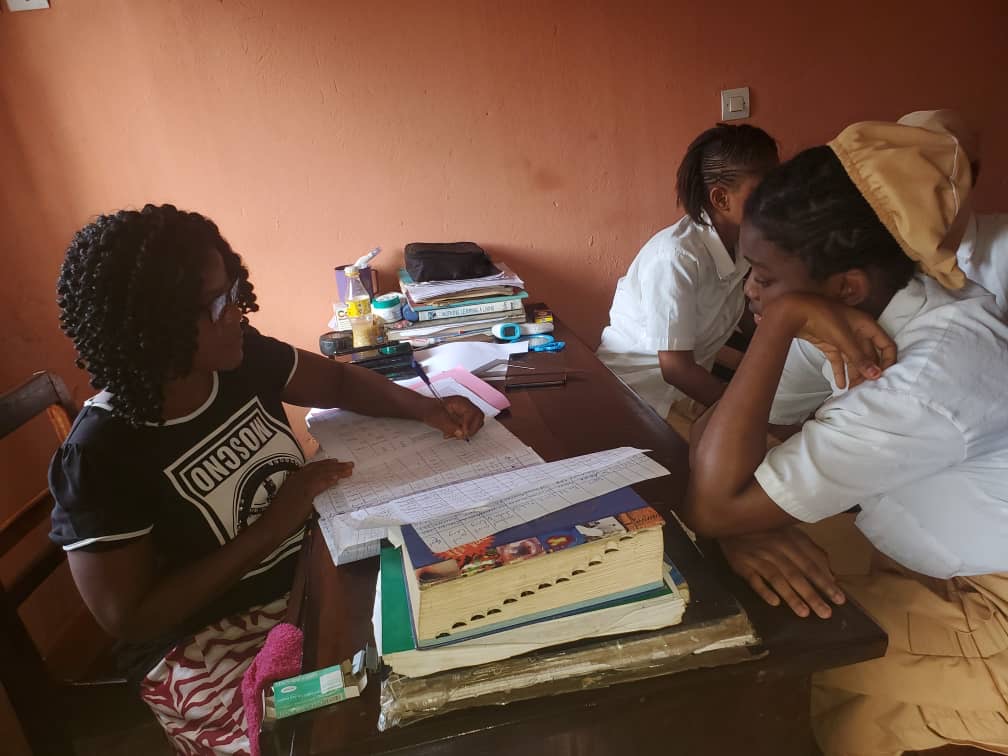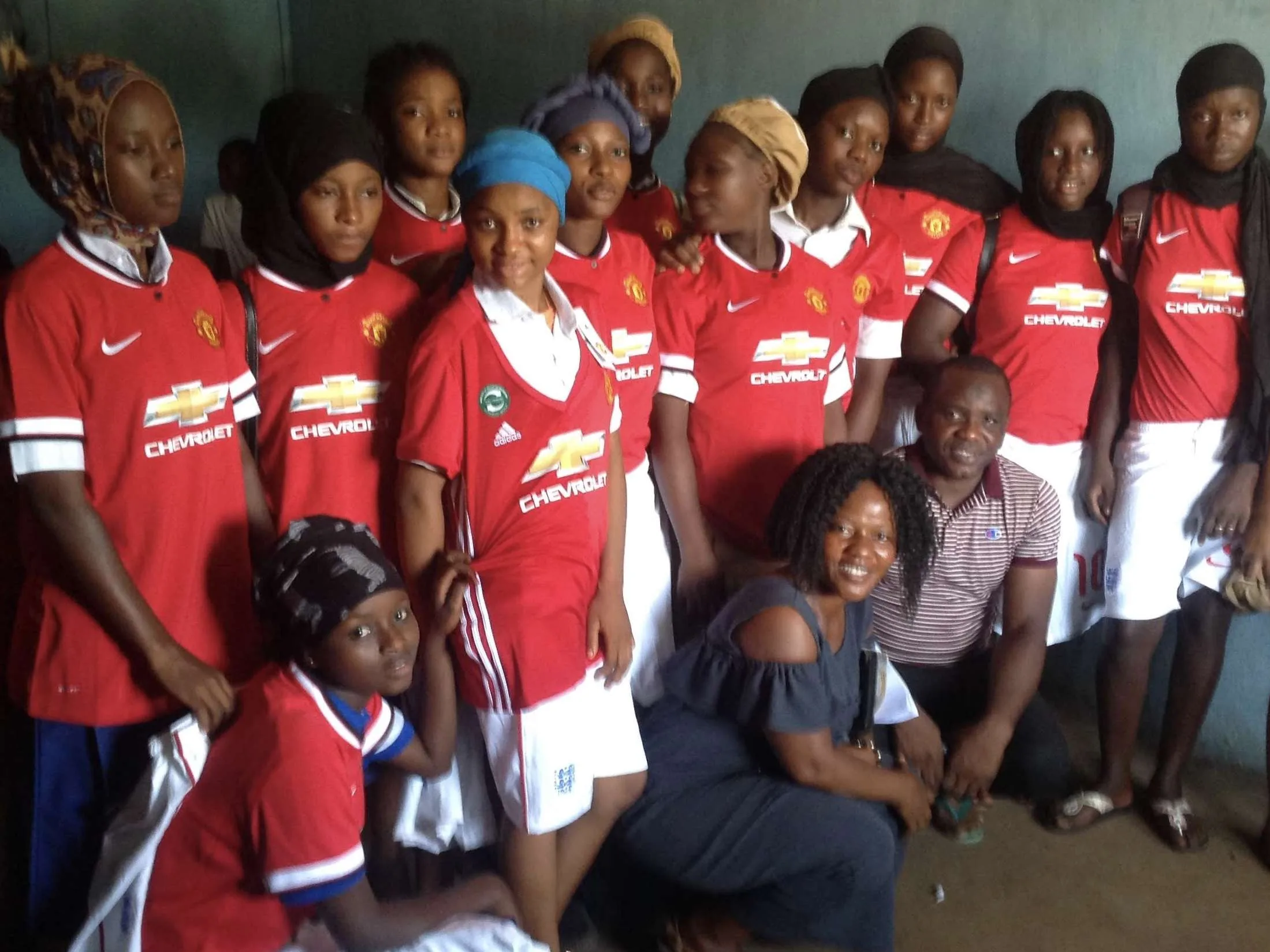5 ways FCRS champion Girls' Education in Guinea
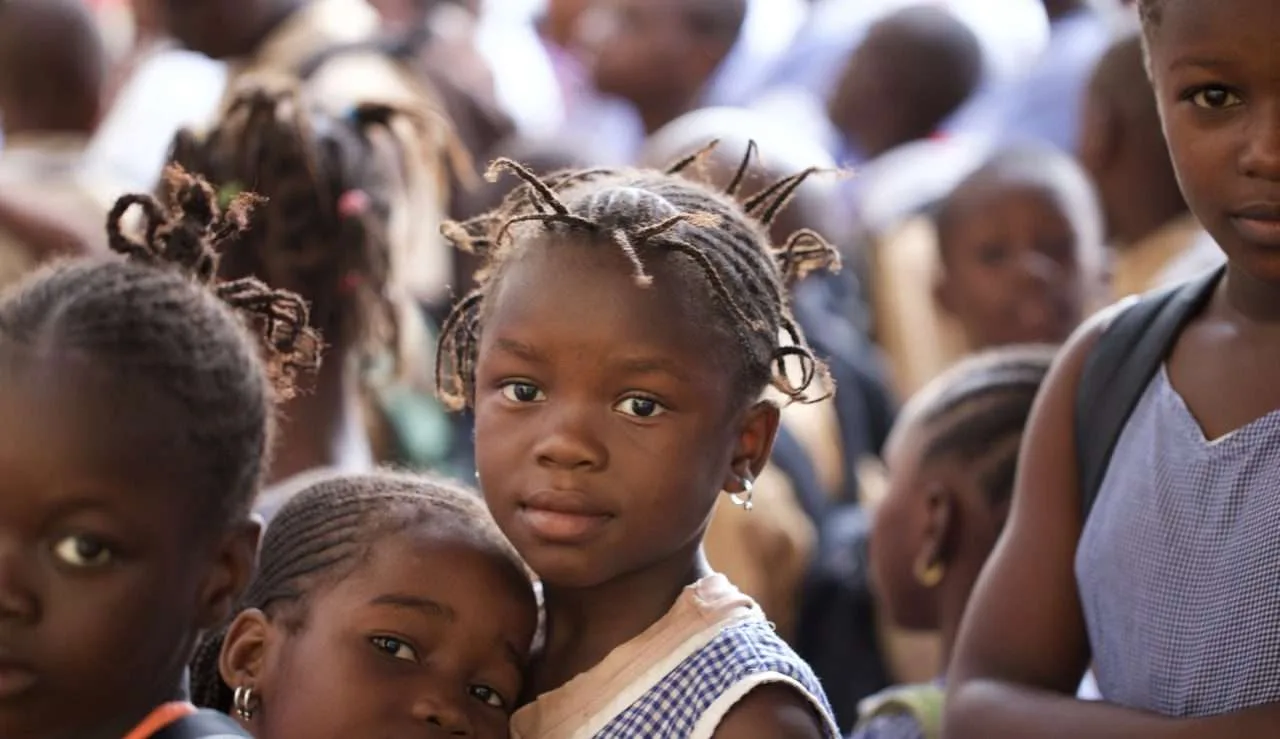
1. Supporting access to girls' education
FCRS award 100 scholarships every year with 50% reserved to girls. Lifting the burden fee payment for girls’ education from their families pusuades them to allow their girls to continue in education giveing them the opportunity to earn a wage rather than be married young. In comparison only 30% of female students in Guinea continue into secondary education .

2. Supporting girls in Education
CRS runs a health club where issues such as as early marriage and FGM and the importance of education are discussed. FCRS supports girls’ education by providing hygiene facilities at CRS with good access to flushing toilets and hand washing facilities. PHSE lessons are part of the core curriculum and cover topics such as AIDs, sexual health and how to cope with personal hygiene at school.
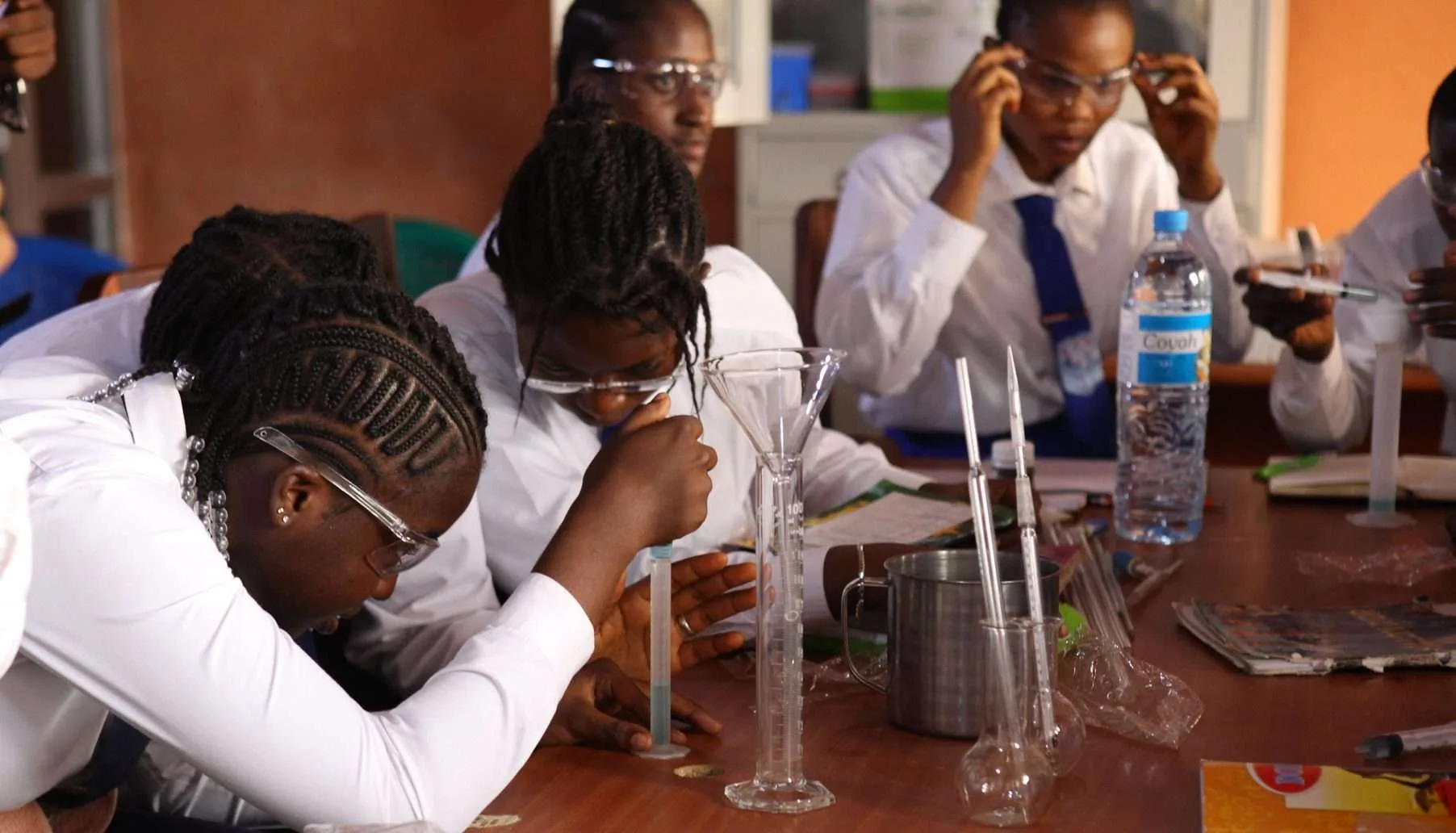
3. Supporting girls' education in STEM
Exam scholarships in science have enabled girls to take STEM subjects in their final exams. Girls excel in practical science and IT. At the popular coding summer school out of 20 students to take part 11 were girls and were among the top achievers in the six week course. Kemah Camara, a CRS alumni, is a champion of girls’ education. She recently entered university to study medicine providing an important role model to future students.
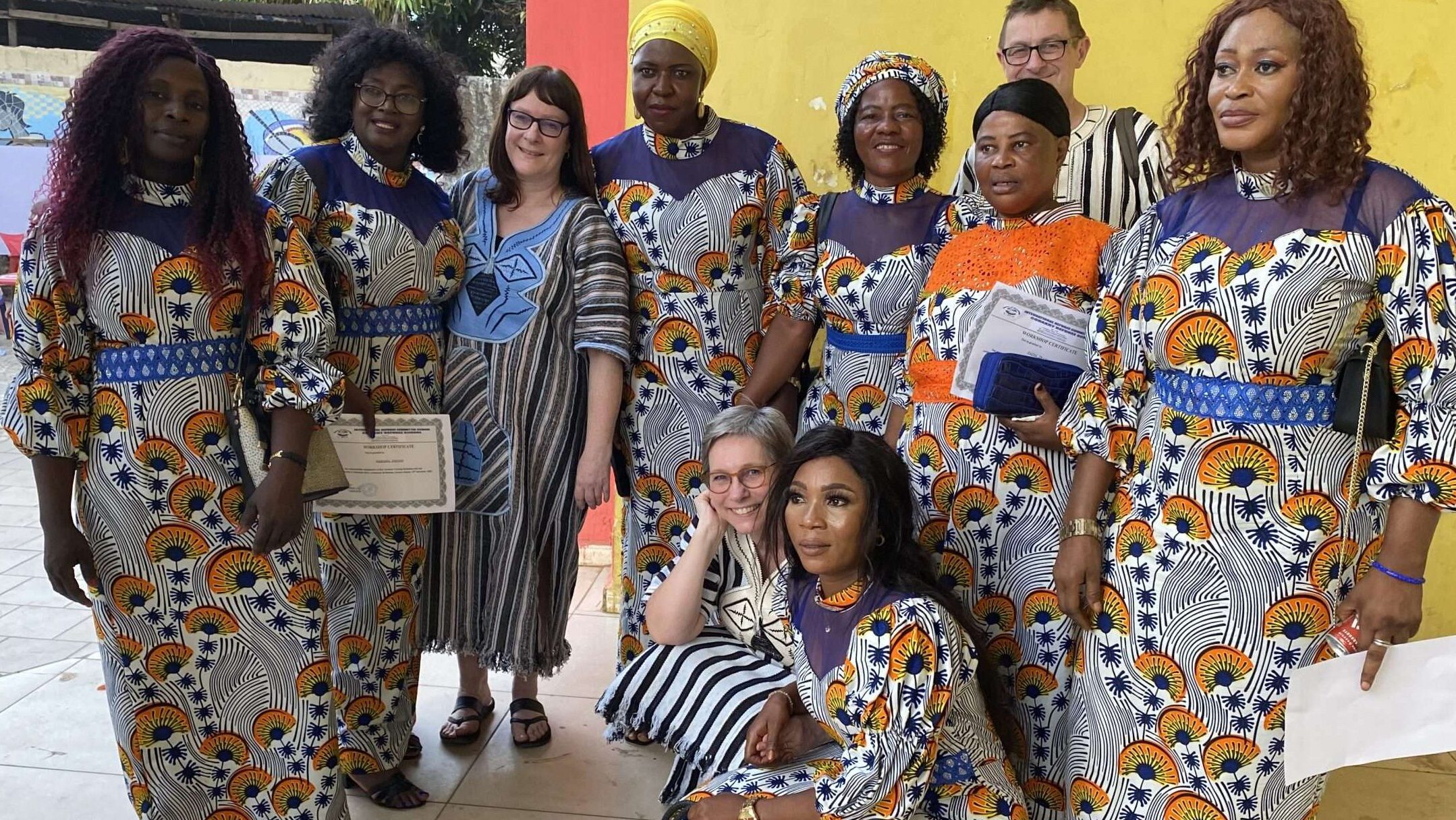
4. Female staff champion girls' education
FCRS funded the training of Madam Faith the Headmistress and supports the employment of Madam Korto Forkpa the school nurse. She teaches PHSE and runs the Health Club. CRS employs five female teachers including a Madam Foyah who is the School Burser. Both Madam Foyah and madam Faith sit on the Management Committee of CRS.
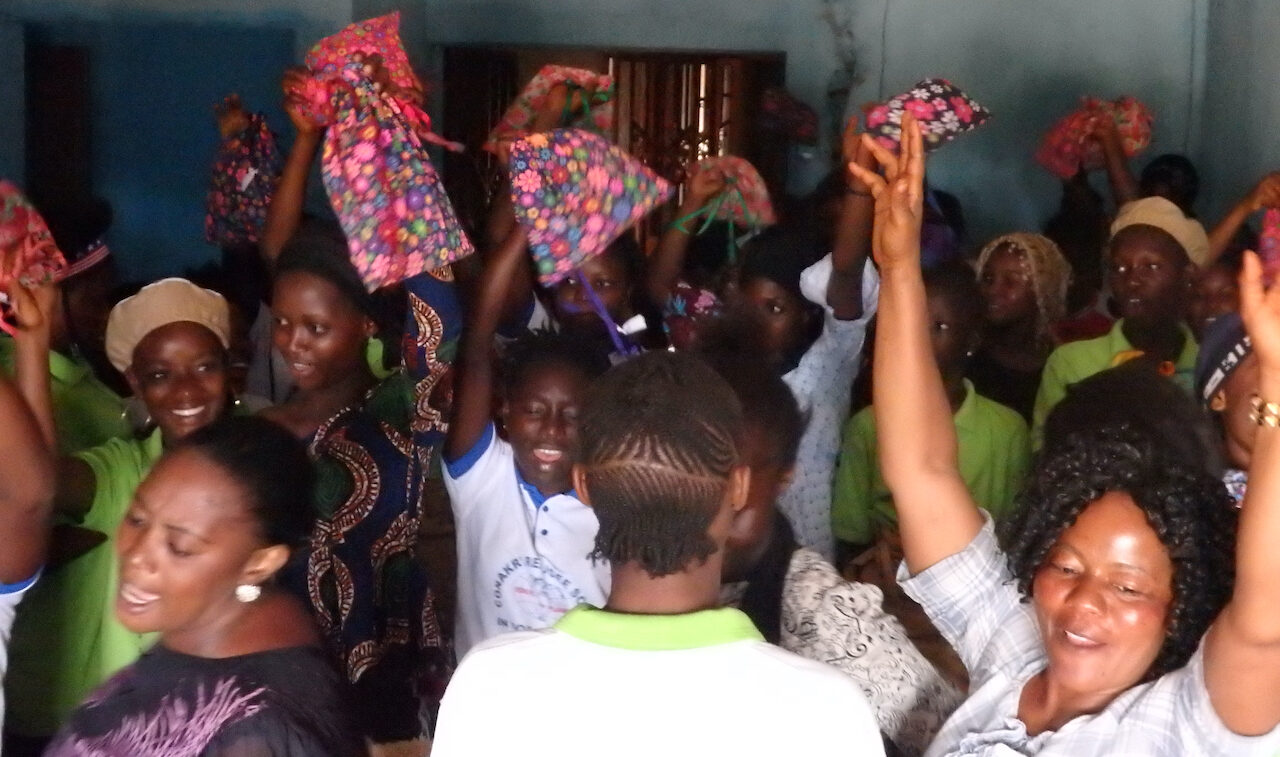
5. A Period friendly school
FCRS provide re-useable menstrual health kits to students so that they can deal with their periods with dignity while remaining in school. Flushing toilets on each floor and hand washing facilities give the girls confidence that they will not have to feel ashamed of having their period start while in class. The school nurse’s office is always open for girls to access support if needed.
- Female literacy in Guinea 33.8%
- Female literacy at CRS 100%
- Female secondary attendance in Guinea 30.8%
- Female secondary attendance CRS 93%
- FGM girls 92%
- Girls marriaged before 15 years 17%
- Girls married before 18 years 47%
5. Menstrual Health and Girls' Education
The problem
From the onset of puberty girls all over the world must navigate how to continue their normal daily activities while menstruating. At the very minimum this means they require access to toilets and wash facilities throughout the day and outside of their home. They also require some products to deal with their menstrual flow hygienically. As menstruation can begin at any point in the day or month, these facilities need to be readily available or carried at all times.
Menstrual pads are expensive In Guinea costing £10-15 per month. Pads available in the market are often cheap versions of western brands that risk infection and toxic shock. This means the cost of paying for pads can be a greater barrier to education than cultural norms or school fees; for context a CRS school cook earns £65 a month, a teacher between £80 and £150 a month and school fees at CRS start at £10 a month and rise to £60 a month in the final exam year.
From an educational perspective this has several implications for girls’ school attendance:
- A girl may not be able to deal hygienically with menstruation if toilets and wash facilities are not available at school.
- If menstruation is not supported at school a girl may be so concerned about the possibility of starting her period during the school day that she may stay home.
- A girl’s parents/guardians may not be willing to meet the additional financial cost of purchasing the menstrual products necessary if a girl is to attend school though her period and so may decide it is not worth her being educated beyond puberty.
Lack of support for menstrual health and financial support to purchase menstrual health products, when added to considerable gender inequality in the home and education, contributes to even greater gender imbalance in education.
Our Solution
Reusable menstrual health kits come in a draw string bag and consist of several cotton fabric pads that clip inside a girl’s underwear, pairs of knickers, soap, a flannel, and a plastic watertight bag. The pads are highly absorbent and can be washed and reused for up to 2 years before they need to be replaced. When provided for free the livelihood impact of each kit is the equivalent of £480 uplift in family income (£10 each month for two years) and undisrupted school attendance through 6-8 post puberty years. What is more the uplift in income goes directly to women who are more likely to spend it on food, health, and education.
In 2017, 2018, 2019 and 2023, FCRS distributed reusable menstrual health kits to CRS staff and students at CRS. The kits were supplied for free by Days for Girls . However, in 2021 and 2022 when COVID prevented FCRS visiting the school, the students had no new kits. As they are not available to buy in Guinea and cost £20 per kit plus postage to send from the UK, we could not afford to get kits to them.
We Have designed kits that are affordable to buy locally so that women can access them even when they are not being provided for free. We will put production of the kits in the hands of Guinean women. There are many skilled seamstresses who are parents at CRS, who could earn a wage from sewing kits. Kits would then be available when needed and could be sold to women outside of CRS for a small profit to support CRS. When CRS students leave school they could get employment opportunities in business management, logistics, finance, and sewing. The kits will be marketed to other NGOs to supply to their projects in West Africa. This venture could increase livelihood potential in the community and enable families to earn enough to pay school fees.
